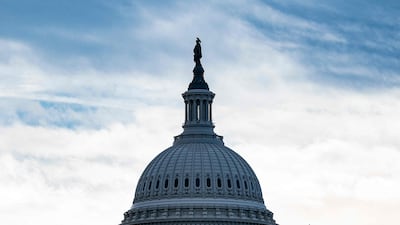The US House of Representatives passed a bill largely along party lines that would create a State Department office given the task of monitoring and combating Islamophobia across the globe.
Under the bill, which passed by 219-212 votes late on Tuesday, President Joe Biden would appoint a Senate-confirmed special envoy to report on and push back against Islamophobic incitement worldwide.
Instances of vandalism at mosques, acts of violence against Muslims and propaganda promoting harassment of any kind will also be recorded.
“We are here today at a time when anti-Muslim hatred has risen to epidemic proportions,” House Rules Committee Chairman James McGovern said on the floor before the vote.
He highlighted regions across the world where anti-Muslim sentiment "continues to build".
Mr McGovern cited a March report from the UN Special Rapporteur on Freedom of Religion that found about 40 per cent of Europeans and 30 per cent of Americans view Muslims negatively.
Republicans largely argued that an office to combat Islamophobia is redundant, given that the State Department already delivers an annual report on international religious freedom.
However, the legislation, which was introduced by Democrats Ilhan Omar and Jan Schakowsky, is modelled on a similar bill that institutionalised the State Department’s special envoy to monitor and combat anti-Semitism, which the House passed 411-1 in 2019.
Other Republicans attacked the bill’s sponsor, Ms Omar, over her previous criticism of pro-Israel lobbying activity as well as a 2012 tweet stating that “Israel has hypnotised the world”, which she has since apologised for.
Ms Omar and several other Democrats have called on congressional leaders to sanction Republican Lauren Boebert for attacks she made last month implying that the Muslim congresswoman is a terrorist.
The White House issued a statement on Tuesday supporting Ms Omar’s bill to combat Islamophobia, though it has an uncertain future in the Senate, where a procedural mechanism called the filibuster requires a 60-vote threshold to pass most legislation.


